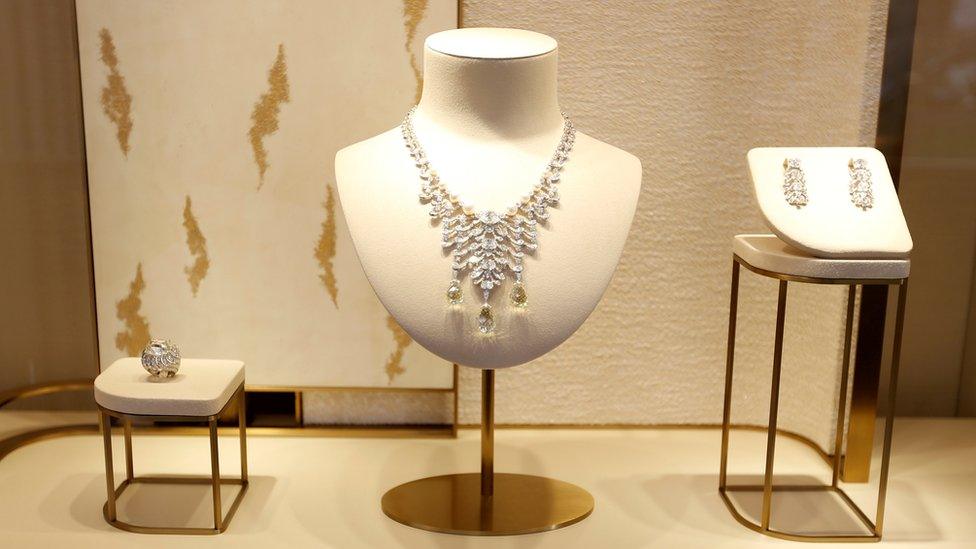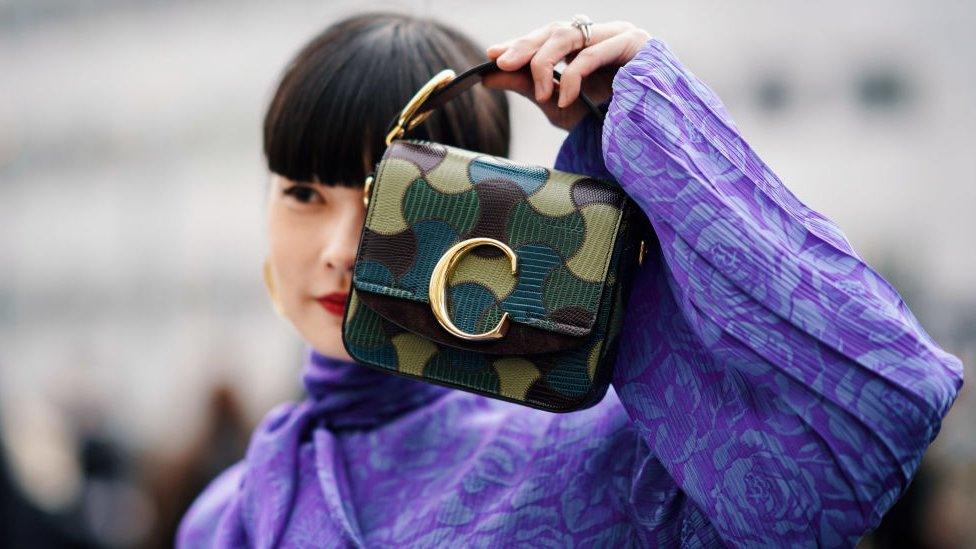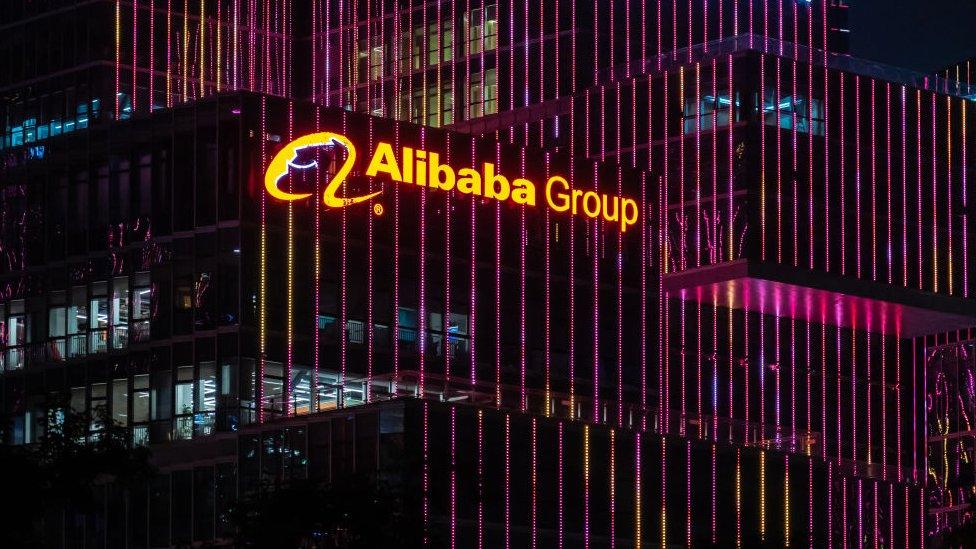Singles Day: Luxury brands jump on China's mega shopping event
- Published

Luxury brands have embraced China's largest annual shopping spree, helping "Singles Day" break records once again.
Firms including Balenciaga and Prada debuted on Singles Day, or Double 11, joining around 200 luxury brands - more than double last year's figure.
Singles Day is the world's biggest 24-hour online shopping event.
This year, the annual sale racked up $74bn (£56bn), with the luxury brands helping Tmall, Alibaba's e-commerce platform, hit new highs.
The event was seen as a gauge of the health of the Chinese economy as it emerges first from the pandemic.
China's Singles Day on 11 November saw 1.9bn products ordered and delivered last year.
Singles Day in China - also known as 11.11 or Double 11 - was originally created by online retailer Alibaba to celebrate the unattached, an antithesis to the romantically-involved on Valentine's Day.
Alibaba's online shopping rival JD.com runs a similar event but Alibaba's Singles Day is bigger in terms of goods sold and revenue.
Despite the healthy sales figures, Alibaba and other Chinese internet giants were this week told they face new anti-trust regulations by the government, aimed at curbing their powers.
Shares of Alibaba, the largest of the country's tech firms, plunged almost 10% in Hong Kong on Wednesday.
Luxury takes lead
One of the big differences this year was the large number of luxury brands taking part. Many had been reluctant to join the discounted shopping festival for fear of damaging their reputation.
But this year, the brands launched Singles Day promotions for the first time as they struggle for sales in Western markets.
Upmarket jewellers Cartier hosted its first live-streaming show on Taobao Live, showcasing a $28.3m necklace to an audience of almost 800,000 people.
Alibaba Singles Day: Dollars or data?
"Global brands are looking at any alternative way to improve their revenues," said Andy Halliwell, a senior retail analyst at digital consultancy firm Publicis Sapient.
"Markets that have recovered more quickly, like China, are good opportunities for these brands to try and bolster their revenues."
He said it was also a chance for high-end brands to sell off their spring-summer stocks which weren't sold due to lockdowns.
French fashion brand Chloe, taking part in Singles Day for the first time, quickly sold out of its handbags.
Jumping on bandwagon
"China has become super important to international brands because it is the only market doing well," added Pascal Martin, a partner at OC&C Strategy Consultants.
"This has prompted several brands that were still reluctant to go on third party platforms to finally jump on this bandwagon.

"Luxury brands have realised that they can join this big party without doing massive discounts, but instead building brand equity with wider audiences. This is what Dior did for the first time this year."
Fear of death
The fear of death in the wake of the Covid-19 pandemic may have been another factor influencing the sale of luxury goods, said Dr Shirley Li, a professor at Hong Kong Baptist University School of Business.
"Studies have shown that when we are faced with the risk of death, we tend to follow our heart (intrinsic motivation) and just focus on acquiring what we really love or want," she said.
"We stop worrying, just want to 'live in the moment' and shop more."
But some non-luxury brands faced pressure to offer big discounts to help drive more traffic to the e-commerce platform.
"It is a complex game of cat-and-mouse with retailers taking a hit on margins to capture business from consumers," said Chris Mulliken, a partner at consultancy EY.
"However, those consumers with money to spend should expect increasingly better deals," he said.
- Published11 November 2020

- Published11 November 2020
